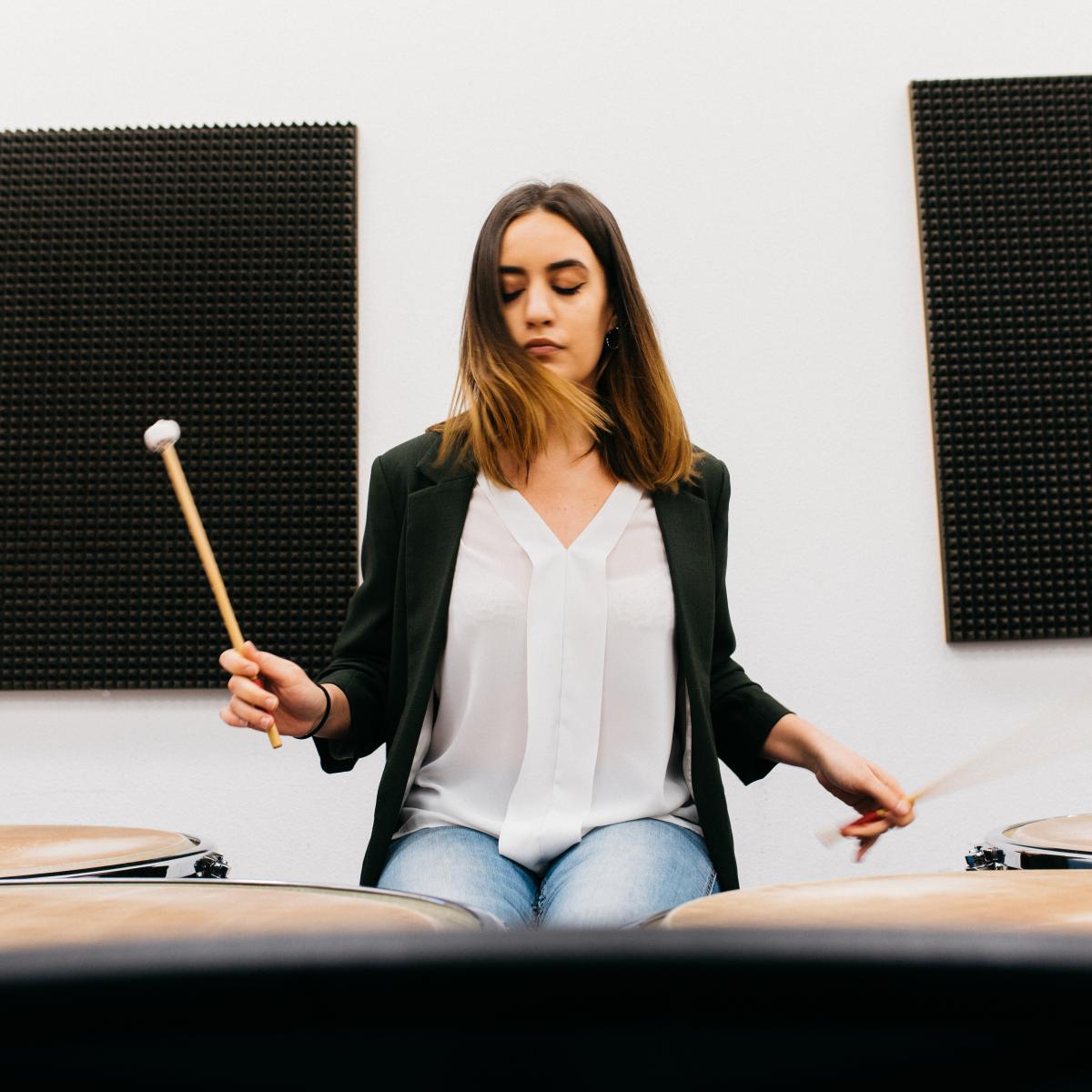
Master
Percussion
Choosing the path of classical percussion studies at Conservatorium Maastricht means being part of a class where pillars like professionalism, hard work, solidarity and camaraderie are fundamental.
Based on the department’s vision that in their fundamental way of playing, percussionists should achieve an open sound, mixed with a fluent and balanced technique, you will be given all the tools to become the ideal percussionist or timpanist that orchestras all over the world are looking for!
In addition, you will acquire teaching skills, enabling you to introduce future players to the world of percussion, with all its instruments and colours.
In the percussion department you’ll be teached by the following lecturers
Curriculum
Curriculum
Before you apply
Admission
requirements
First round
The audition consists of two rounds. For the first round, the candidate needs to record 2 videos that contain:
-
Video 1: A short introduction of him/herself in English: talk about your musical experiences, your motivation to study music, your main subject and why you choose to audition at Conservatorium Maastricht.
-
Video 2: In the second video, the candidate demonstrates his/her artistic and technical skills. The video can be recorded in several takes if the candidate's practical situation doesn’t allow him to record all required instruments in one location. However, every take should be without cuts or any edits. The candidate should start by speaking their name and student number of Conservatorium Maastricht.
The video(‘s) should contain the following:
Snare drum:
-
B.Lylloff - Arhus Etude nr. 9
Timpani:
-
E.Keune: etude no. 142
Melody instrument:
-
Sommerfeldt - Musikk for En Slagwerker III (Xylophone)
-
One solo piece piece for marimba or Vibraphone (4 mallets)
Additional videos (not required): the candidate may provide concert video registrations.
The videos should be uploaded to an online platform such as YouTube.com or Vimeo.com. It is the candidate’s responsibility to make sure that the video links work.
Second round
The candidate will be invited to come to Maastricht for an in-person live audition. The candidate needs to prepare the following:
Snare Drum
Mandatory pieces:
-
B.Lylloff - Arhus Etude nr. 9
-
J.Délécluse - Test-Claire
One etude to be chosen from:
-
J. Délécluse - Douze Etudes, Keiskleiriana
-
M. Peters - Advanced Snare Drum Studies, Hard Times
Timpani
Mandatory pieces:
-
E. Keune - Etude 142
-
E.Carter- Improvisation (from Eight Pieces for four timpani)
One etude for 4 timpani to be chosen from:
-
R. Hochreiner: Etüden für Timpani (from nr. 54 onwards)
-
F. Hinger: Technique for the Virtuoso Timpanist (from etudes for 4 drums)
-
J. Délécluse: Trente Études, 3e Cahier
-
J. Délécluse: Vingt Études
-
N. Woud: Symphonic Studies for Timpani
-
N. Woud: The Timpani Challenge
-
E. Carter: Eight Pieces for four Timpani
-
E. Keune: from etude 136 onwards
Melody instruments
Mandatory pieces:
-
Sommerfeldt - Musikk for En Slagwerker III (Xylophone)
-
Two movements chosen from the first Cello Suite by J.S. Bach
-
One solo piece for marimba or vibraphone (4 mallets)
In the second round, the candidate is always invited to an online interview with one of the Master Project Coaches. In this interview we discuss the candidate's motivation and experience in the field of research and cultural entrepreneurship. The Master Project Coach furthermore determines the level of English proficiency.